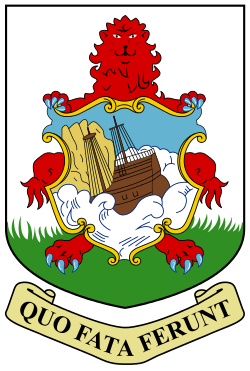| | |||||||||||||||||||||||
18 May 1976 | |||||||||||||||||||||||
All 40 seats in the House of Assembly 21 seats needed for a majority | |||||||||||||||||||||||
| Turnout | 84.30% ( | ||||||||||||||||||||||
|---|---|---|---|---|---|---|---|---|---|---|---|---|---|---|---|---|---|---|---|---|---|---|---|
This lists parties that won seats. See the complete results below.
| |||||||||||||||||||||||
 |
|---|
| Law |
| Administrative divisions |
General elections were held in Bermuda on 18 May 1976. [1] The ruling United Bermuda Party remained in power after winning 26 of the 40 seats in the House of Assembly, with the opposition Progressive Labour Party gaining three seat, giving it a total of fourteen.
